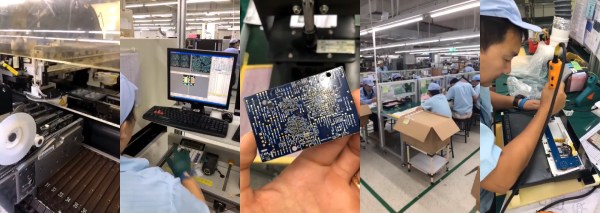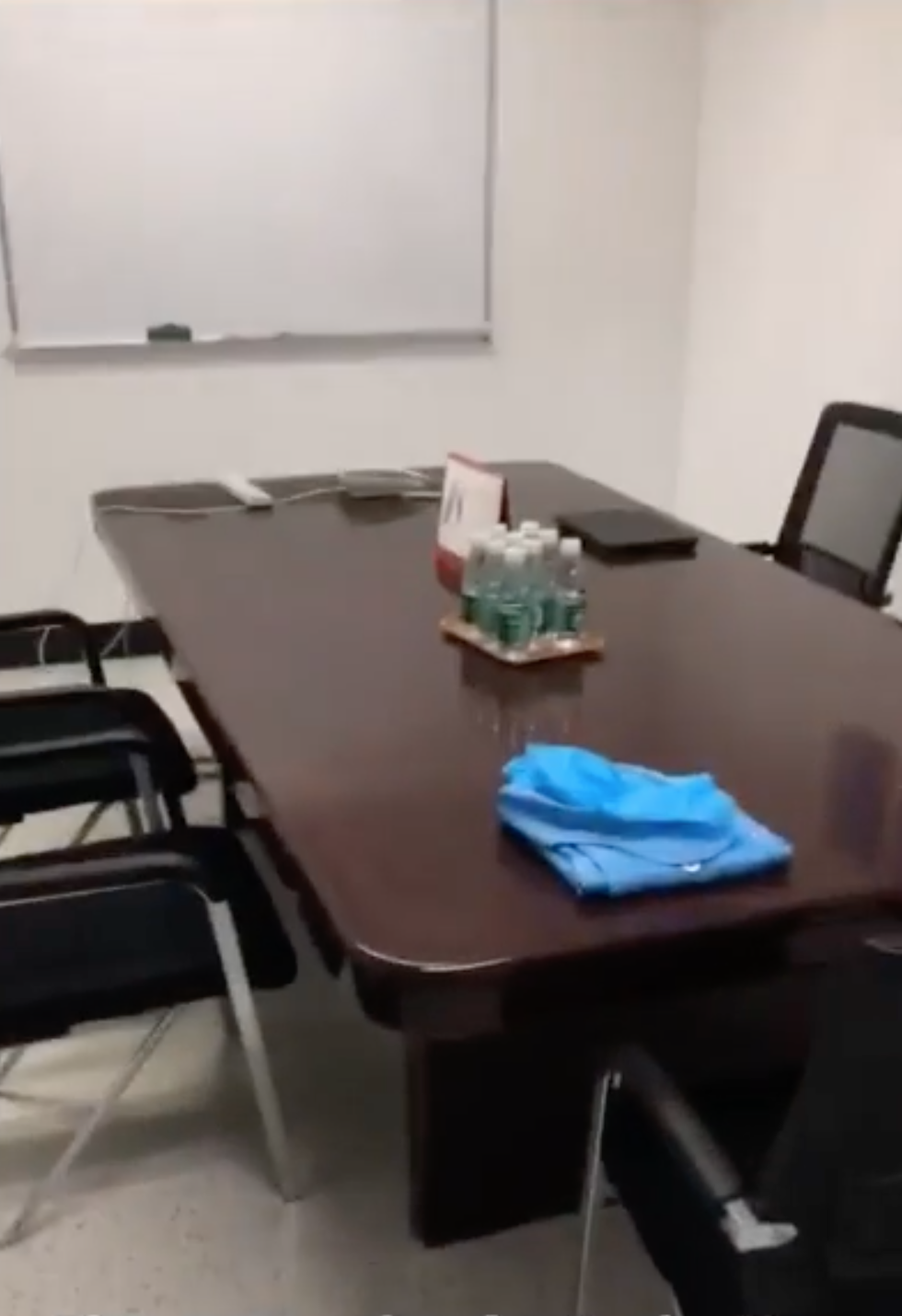Join us on Wednesday 10 July 2019 at noon Pacific for the Manufacturing in China Hack Chat with Jesse Vincent!
It started out where many great stories start: as a procrastination project. Open source developer Jesse Vincent decided that messing around with a new keyboard design was a better thing to spend time on than whatever he was supposed to be doing, and thus Keyboardio was born.
Their heirloom-grade keyboards of solid maple and with sculpted keycaps are unique to the eye and to the touch, but that’s only part of the Keyboardio story. Jesse has moved further down the road of turning a project into a product and a product into a company than most of us have, and he’s got some insights about what it takes. Particularly in climbing the learning curve of off-shore manufacturing, which will be the focus of this Hack Chat. Join us to learn all about the perils, pitfalls, and potential rewards of getting your Next Big Idea manufactured in China.
 Our Hack Chats are live community events in the Hackaday.io Hack Chat group messaging. This week we’ll be sitting down on Wednesday July 10 at 12:00 PM Pacific time. If time zones have got you down, we have a handy time zone converter.
Our Hack Chats are live community events in the Hackaday.io Hack Chat group messaging. This week we’ll be sitting down on Wednesday July 10 at 12:00 PM Pacific time. If time zones have got you down, we have a handy time zone converter.
Click that speech bubble to the right, and you’ll be taken directly to the Hack Chat group on Hackaday.io. You don’t have to wait until Wednesday; join whenever you want and you can see what the community is talking about.

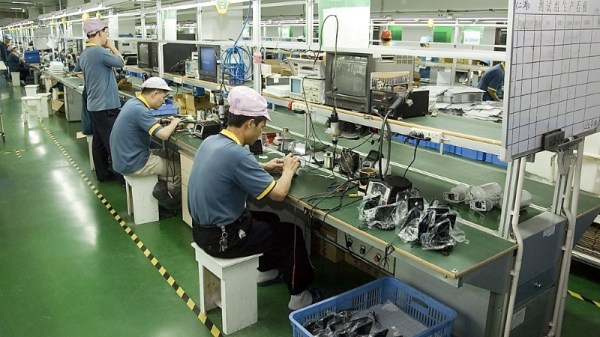
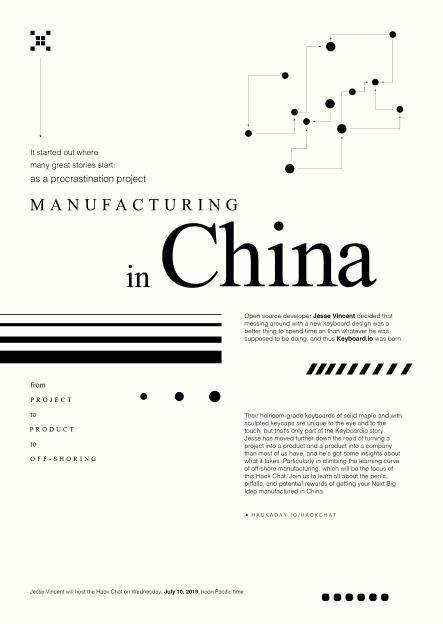
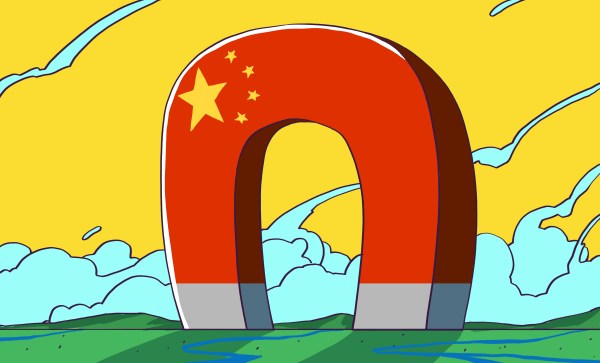
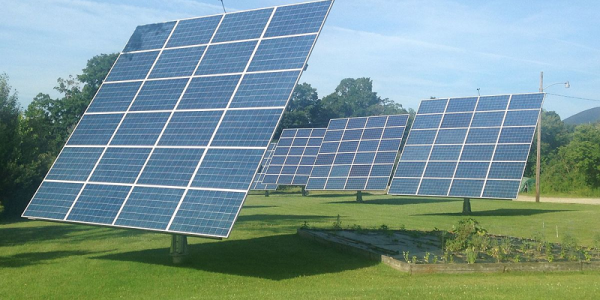



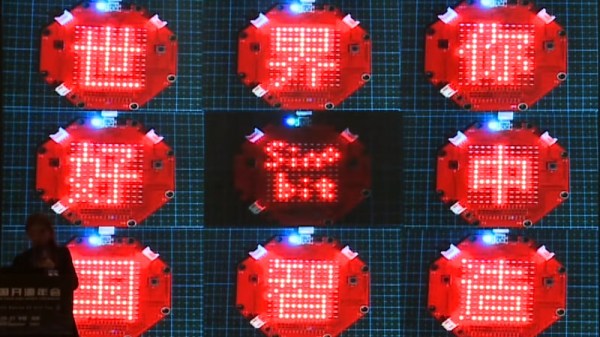
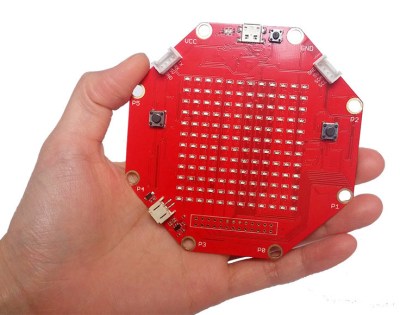 In the talk she takes us through the potential benefits of open source to Chinese business by using her projects as case studies. In particular she concentrates on how the arguments for open source in a commercial arena have to be made differently for a Chinese business to those used in the rest of the world. Using the analogy of a college dorm hotpot party, she outlines the importance of a community in open-source development, then we get a blow-by blow account of her work with Elecrow and Creality on the
In the talk she takes us through the potential benefits of open source to Chinese business by using her projects as case studies. In particular she concentrates on how the arguments for open source in a commercial arena have to be made differently for a Chinese business to those used in the rest of the world. Using the analogy of a college dorm hotpot party, she outlines the importance of a community in open-source development, then we get a blow-by blow account of her work with Elecrow and Creality on the 